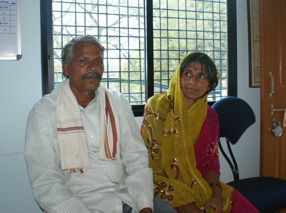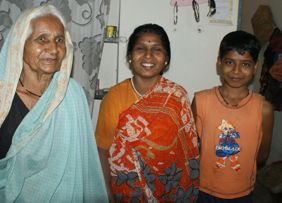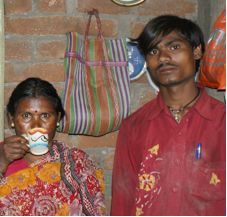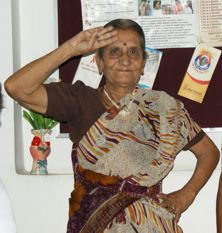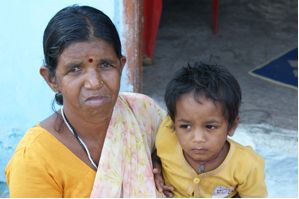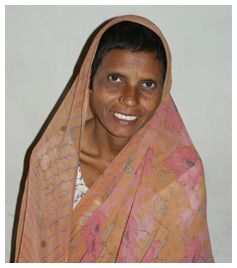ONE OF the most difficult hurdles faced by Women In Need, is tracing the families of the women who suffer from mental illness; harder still is reuniting them.
In 90 per cent of such cases, the family has actively removed the individual from the home, with the intention and hope of never seeing them again.
Through mental health education and effective anti-psychotic drugs, it is possible to rehabilitate many abandoned women back into society, as these recent examples prove:
Nimila Nistwade - found wandering the streets of Wardha, local police brought her to WIN's Dattapur shelter. Nirmila was aggressive, abusive and unable to follow simple instructions. Following anti-psychotic treatment along with emotional support and structured rehabilitation, Nirmila has been successfully reunited with her husband, one year on. Her progress is being continually monitored.
Aruna Gawalri - found on the streets of Nagpur suffering from schizophrenia. After two years, she has been reunited with her mother and son, and is a contributing member of her family. She is also well-loved by the women in her local community, who actively support her following mental health awareness.
Nirmila Gajbuye - found in the grounds of a government hospital in Nagpur with schizophrenia, she was cared for by WIN for three years and was finally reunited with her family after being missing for 12 years. Nirmila's second son broke down when he saw his mother, who was just nine-years-old when she left home.
Urmila Roy - found confused and wandering the streets, she appeared mentally stable but only speaking Bengali made communication difficult. Through a translator, Women In Need's consultant psychiatrist confirmed a diagnosis on amnesia. Following 18 months of shelter, support and gentle coaxing, Urmila is now living with her widowed sister-in-law on the outskirts of Kolkata (Calcutta). Our translator, social worker and friend, Mr Manohar Roy, keeps WIN regularly up-to-date with her progress.
Chamelli Kamali - found on the streets of Nagpur, and uncontrolled schizophrenia made her unpredictable and volatile. A year later, she is living with her family and is especially loved by her grandson. Chamelli has just started work as a cleaner and saves money into her bank account every month. Her continued progress is closely monitored.
Noorja Sheikh - cared for by Women In Need for a year. Due to schizophrenia, she was abandoned by her husband and lost contact with her family, who were discovered in Hyderabad, 300 kilometres from Nagpur. Noorja is HIV positive but is currently mentally stable and able to monitor her own HIV status at her local government hospital. Her brother is now looking after Noorja and her two children, and WIN regularly receives monthly updates.

